Dashnor Kaloçi
Memorie.al publishes some archival documents extracted from the Central State Archive (fund of the former Central Committee of the ALP), which contains the report of the First Secretary of the Central Committee of the Communist Party of Albania, Enver Hoxha, held at the Plenum IV on October 17, 1945, in the framework of the electoral campaign for the elections of December 2, 1945 for deputies in the People’s Assembly. The whole speech of Enver Hoxha in that meeting where he stopped and made a detailed summary from the period of the Anti-Fascist National Liberation War, putting in “balance” the reports of the Communist Party of Albania and the National Liberation Army led by it with the British allies. the United States and the Soviet Union, the war of these allies with Nazi Germany, the relations of official Tirana with the Balkan countries and beyond, such as: Yugoslavia, Greece, Bulgaria, Romania, Poland, Hungary, etc., the escape from Albania of high nationalist exponents of Balli and Legalitet and their shelter by the Anglo-Americans, the armed resistance of the “leaders of the reaction” in Northern Albania, such as: Muharrem Bajraktari, Fiqri Dine, Gjon Marka Gjoni, etc., their arrests and convictions by the courts , Soviet aid to Albania in tons of wheat and admission of the first contingent of Albanian students in schools, universities and military academies of the Soviet Union, etc.
“The pursuits by our forces leave no opportunity for Bajraktar leaders such as: Muharrem Bajraktari, Fiqri Dines, Gjon Markut, etc., to organize and arm themselves. It is true that they have escaped our forces and this should concern us strongly, but it is a fact that they are moving with great difficulty. These elements, of course, cause us headaches, why in many Northern provinces, our work has been and continues to be poor. Sometimes there their slogans take place and there are still people still waiting for the events. They will be strongly connected with this government, only an intensive political work on our part and the direct interest of the government in solving their problems in a concrete way. The strength of the reaction lies not only in the armed gangs; we will see it manifested in other elements and in various forms, who, supported by the external reaction, are preparing the resistance against our democratic power. This reaction aggregation process is not a simple development. “For us, who run the policy of the Front and the government, it will be a big mistake if we do the calculations and if we idealize our internal situation and our power.”
This is what the First Secretary of the Central Committee of the Communist Party of Albania, Enver Hoxha, said in his speech at the meeting of the IV Plenum held on October 17, 1945, in the framework of the electoral campaign for the elections. of 2 December ’45. For more about this, we will meet in this article, which Memorie.al publishes for the first time and in full.
Speech of Enver Hoxha held at the IV Plenum of the Central Committee of the Albanian Communist Party, on October 17, 1945
Friends,
Before this wide meeting of the Plenum of the Central Committee of the Party, many problems are posed to us, especially the most important ones, such as the problem of the Party with all its sectors of work: government, army, Front, etc., as well as the issue of elections. for the Constituent Assembly. As noted in the agenda, we will also discuss and decide on the convening of the Second Party Conference. Here we will not lay any new political or organizational line, but from the discussions of the comrades of the Bureau and all other comrades, we will try to see clearly the situation in which we are and are working, we will have an exact idea of strength of our Party in all its development during the war. From now on, the new method of work will be determined for the right solution of the issues that are put before us in this situation that differs from that of the war phase. It has become customary that in every meeting, especially in the meetings of the high forums of the Party, to be put at the forefront of the agenda: “Foreign and domestic political situation.”
This is a good practice if it is properly understood and does not degenerate into a count of simple chronological facts; but, if we will be able, from these chronological facts that determine the international and domestic situation, to draw the right political conclusions, we will know how to properly orient our work, our political attitudes and will facilitate the solution of complex problems. That party member who does not clearly see the course of events and does not make the right deductions, he will never be able to properly implement the Party line. So how is the international and domestic situation presented to us in this new post-war phase? We will be greatly mistaken if we think like that simple man who made the war and now remembers that everything is fine. Things are not as simple now in peacetime as they were not in wartime. We fought hard to win the war on fascism, but we must fight and work hard to defend and consolidate peace. We waged a great war to defeat fascism, the fiercest enemy of democracy, but we also fought for a happier life, for a healthier and more progressive democracy than existed before the war in Western Europe.
The peoples took up arms, not only to gain the liberties robbed by the fascists, but also to reject the yoke of the imperialists and the reactionary cliques, disguised under the guise of democracy. That is why the war was not so simple because in the anti-fascist allied camp, there were states that threw all their forces into the fight for the protection of their freedom and true democracy and of other enslaved peoples, but there were also states that they understood and did the fight against fascism differently. In the anti-fascist bloc, the Soviet Union was the flagship of the liberation war; he carried on his shoulders the greatest weight of the war, he was the backbone of the anti-fascist alliance, he was the inspirer, encourager, and protector of the enslaved peoples, he was the great factor in the defeat of Nazi Germany. England and America were thrown into the war against fascism after their existence was threatened by Germany, but their war never took on the character of a total war, rather their efforts to hasten the end of the war were not so great; they guarded their forces to defend and consolidate their imperialist positions and not to throw them into the balance of war; they tried to slow down the war that the enslaved peoples were waging, they tried to strengthen the reactionary positions in Europe to have it as support in the current phase of peace.
The course of events during the war pointed out all these facts I showed above, but despite all the contradictions and different views on the anti-fascist war that existed between the Soviet Union and its Western allies, Nazi Germany and the English and American imperialist cliques , could not break the great alliance of the anti-fascist bloc, for the sole reason that the Soviet Union, with its just policy, and with its heroic struggle, defeated all the maneuvers of fascism and reaction. To the communists, then, their attitude and work was clear, why the attitude of the Soviet Union was clear. Communists in all the enslaved countries had to raise their peoples in the general uprising and fight mercilessly against fascism and their henchmen. With their open war against the occupier and his attempts to divide the bloc they had to defend and strengthen the Soviet Union alliance with England and America. At the same time, they had to strengthen the positions of democracy, strengthen the positions of the people and take the reins of command and government. All these contradictions and different views, which existed in the anti-fascist bloc: different concepts on democracy, attempts to repeat the past, to strengthen the positions of reaction and to seize power from the hands of the people, became clearer, with the break-up of Germany and are deepening day by day and more during the period we are going through.
So now, in this preparatory phase of peace, the work is not so easy and simple. We must protect peace at all costs, this is the interest of the Soviet Union, this must be our interest. Therefore, just as we were always guided by the Soviet Union throughout the war and won, we must still have our eyes on it, see its international position well, walk its Leninist-Stalinist path, defend the efforts and interests of his, because only then will we protect the interests of our country. So, what is it like in post-war Europe, what are the positions and views of the Anglo-Americans and the Soviet Union in the international arena, and how are the positions of peace presented? On the eve of the break-up of Germany we noticed a phenomenon that should not surprise us: while on the Eastern Front and at the gates of Berlin it was fighting with the greatest severity, the Western front was completely disintegrated, the German resistance was insignificant and the armies the Anglo-Americans were running over Germany. On all other fronts, where the Red Army, or resistance armies, fought, the fascists fought fiercely. Here, then, we must be clear. The Anglo-Americans try to save as much as they can from the remnants of fascism; they try to strengthen the reactionary positions, reorganize and reorganize it to make it a barrier against the establishment and triumph of true democracy.
The “great exodus” of fascist war criminals and quislings finds refuge and support within the Anglo-American army and in the areas occupied by them. In addition, the British directly and the Americans indirectly, where the reaction has strong positions, violating any democratic principle, with the greatest brutality, intervene militarily to defeat the progressive movements, to bring the reaction to power and to strengthen the positions of this and fascism. This thing is happening in Greece. In the practice, therefore, of the break-up of Germany and its unconditional surrender, we see the first open offensive of the reaction to consolidate the positions at all costs, as far as this transitional moment can allow, and to the extent that it finds strong resistance to The Soviet Union, the resistance movements and the progressive movements of all the generally enslaved peoples. So, under the shadow of the anti-fascist alliance and the common victory, the international reaction led by England and America, are waging a “surnoise” and provocative war against the Soviet Union and all popular democracies, resulting from this liberation war.
On the other hand, the Soviet Union at the helm and all other countries where popular democracy is established, as well as the entire progressive part of the world, having as main principle the maintenance and strengthening of peace, as well as the strengthening on a sound basis of the alliance in this war. , fight for the triumph of democracy in Europe, for the eradication of fascism and its remnants, for the preparation of a just and lasting peace. Of course, it was not an easy task for Britain and America to launch an open campaign against the Soviet Union at the beginning of the post-war period, but this campaign of slander and denigration is slowly taking shape and becoming sharper. For all the different views that existed between the Anglo-Americans and the Soviets, yet the Yalta Conference and that of Berlin, ended successfully; but the last London Conference ended without any result. There the Anglo-Americans, in addition to the innumerable difficulties they posed, openly sought to dictate their will to the various peace treaties, violating the decisions taken in Berlin by the three great ones. This was the first stage of an open dispute, not only on procedural issues, but essentially the principle.
The world reactionary press, stripped its paw against the Soviet Union and the masked fascists, with their press, reached to the threats and provocations of their usual type, the Anglo-Americans and the world reaction try to put in their clutches all those peoples who during the war were able, with their war, to seize power. Reaction efforts in this regard take first place. In many European countries, the fierce struggle of the peoples against the occupier and his tools not only dealt a strong blow to the local reactionary cliques, but severely compromised the positions of England and America. In this war the sympathy and friendship for the Soviet Union was revived and strengthened. The international reaction against this situation is fighting fiercely. All the occupied countries of Europe until yesterday, especially those of Eastern and Southeastern Europe in their foreign policy are inclined towards the Soviet Union, which protects and supports them to strengthen democracy. In Poland and Yugoslavia, the reaction tried to recover and bring to force the old reactionary cliques, but failed.
The Yalta Conference resolved the issue of the governments of these two countries. But that does not mean that the reaction threw the guns. The offensive reaction against Bulgaria, Romania, Hungary and Albania is extremely wide and especially now in the case of electoral campaigns, which will be crucial. The international reaction is recovering and strengthening the shocked or severely damaged positions of any country’s reaction. The organization of the reaction in different European countries is materializing and taking shape. The Soviet Union and all other progressive peoples and governments are fighting against this growth and against this strengthening. But in this fierce struggle for the triumph of democracy, the care of the Soviet Union and other progressive governments for maintaining peace is a key issue. In these positions we stand against the Anglo-Americans. They do not take kindly to our government and popular democracy and fight it. They so far do not even intend to know us and knowing, in our opinion, will not be so easy and fast. Any of our rightful requests, in the international arena, have gone unanswered or given a negative response. They accuse our government, just as they accuse Yugoslavia, Poland, etc.
Yes, of course, war has its variants, according to the importance they place on each country and the positions that this country has. So far, the reactionary press has not declared an open war against us as it has against other countries, but this does not mean that it will not happen. On the occasion of the elections, the offensive against us will take place throughout the range. The point is that we know how to maneuver to give less weapons to the external and internal reaction to fight us. Here is the issue of a resilient policy, without falling into opportunism, a policy that strengthens our internal and external positions. Our right attitudes and tactics will be determined by the discussions we will have here, after seeing the situation concretely and after analyzing the work we have done. Strengthening our international positions depends on the consolidation of our internal positions, which are conditioned by our intensive and fair work, depends on the correct implementation of our Party line. In such an international situation, not to mention that peace positions are compromised, yet these are very difficult to defend. We must make every effort to defend and strengthen the positions of true popular democracy and to guard against provocations that have not been and will not be missed, both by Greece and by the Anglo-Americans…
The Soviet Union shows a special interest in us. In addition to the great moral support he gives us in the international arena, he is giving us material and cultural help. The gates of the Soviet Union are open to us; officers from ours have been admitted to military schools; the first contingent of university students is leaving. Seeing our economic hardships, the Soviet government accepted our demands and sold us 20,000 tons of wheat, which has begun to come; for this we have concluded a trade agreement. We have friendly relations with Yugoslavia and other Balkan countries, such as Bulgaria, Romania, Poland and Czechoslovakia. Proposals for the recognition of our government have been made by the Bulgarian, Romanian and Polish governments. Such is the external situation in general and our international positions, as I said above, will be strengthened even more when we strengthen our internal positions. How is the situation presented to us inside and where does our strength lie? With the liberation of Albania and beyond, our internal situation has greatly strengthened. As everywhere else, in our country, the reaction was armed by fascism and together with it fought us with weapons. The internal reaction, although it had weak ties with the international reaction and especially with the English and American one, still had their direct and indirect help.
Yet the internal reaction ate a heavy blow militarily and politically. Its leaders either went out of bounds or were caught by us and tried. The judgments of those comrades, who remembered or claimed that we uprooted the reaction, were unfounded judgments. Even after the liberation of Albania, we had to carry out an operation in the North to extinguish the armed and aggressive resistance of the reactionary and bayraktar leaders left inside. Our reaction cannot be said to have had its roots above water, with all the fist he ate, sooner or later in the most favorable conditions for him, he would move and organize. In the first stage after liberation, the reaction had his nails cut, he was blunt. Before our strength and our lightning actions, the remnants of the reaction lay in latent form. His activity was summed up in the issuance of slogans against the government and power, against the army. The attitude of the Anglo-American allies towards our government and the intervention in Greece added to its courage. Now he began to increase activity and tried to hit our strongest and most dangerous institutions for him. Organizing desertions in the army was his open attempt. But we can say that so far, all attempts of reaction waste to arm and organize in more or less large units and for open actions, have failed.
The pursuits by our forces leave no possibility for the Bajraktar leaders such as: Muharrem Bajraktar, Fiqri Dines, Gjon Markut, etc., to organize and arm themselves. It is true that they have escaped our forces and this should concern us strongly, but it is a fact that they are moving with great difficulty. These elements, of course, cause us headaches, why in many Northern provinces, our work has been and continues to be poor. Sometimes there their slogans take place and there are still people still waiting for the events. They will be strongly connected with this government, only an intensive political work on our part and the direct interest of the government in solving their problems in a concrete way. The strength of the reaction lies not only in the armed gangs; we will see it manifested in other elements and in various forms, who, supported by the external reaction, are preparing the resistance against our democratic power. This reaction aggregation process is not a simple development. For us, who run the politics of the Front and the government, it will be a big mistake to do the math and to idealize our internal state and our power. To really see the situation, to keep in close contact with the masses because otherwise we will have great disillusionments, the reaction will gain ground.
The international situation and the unfavorable attitude of the Anglo-American allies towards our government and power, are favoring the accumulation of reactionary elements such as dissatisfied elements, the Catholic clergy, unexplained intellectuals and who have been either in enemy positions or indifferent, strata of large traders, who have been hit by extraordinary profit taxes, permanent speculators, the layers of beys and aghallars who have been affected by the agrarian reform law. If we do not work properly and do not properly implement the Front line around these, we can certainly gather all those indifferent elements not mixed in politics and who fail to properly understand the maneuver of reaction and our efforts in this situation of difficult. This category of people is quickly influenced by any reaction slogan and stays with us only when we keep him in constant contact. All these layers, which I mentioned above, we have to look at carefully, look at them not administratively, but work with them. It is not so easy to work with the Catholic clergy. The clergy have influence in Shkodra and its districts and this cannot be eliminated only by administrative measures. The Catholic clergy is a well-organized entity, with traditions and close ties to external reaction and to the Vatican. Therefore, his organization, we must oppose our healthier organization, his policy, our straight political line and force him to fight in our field and not in his field and with the slogans he wants. Memorie.al
Continues in the next issue




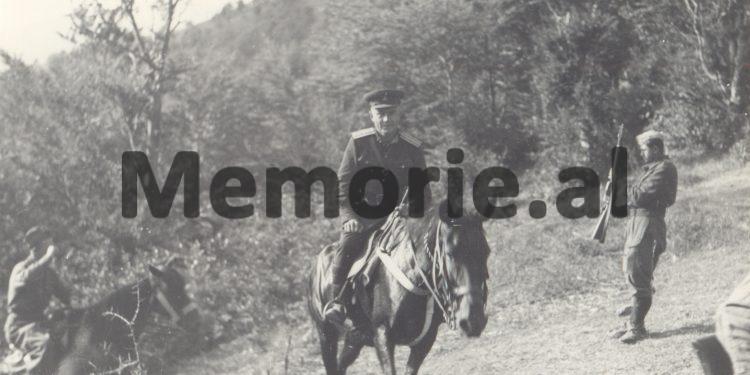
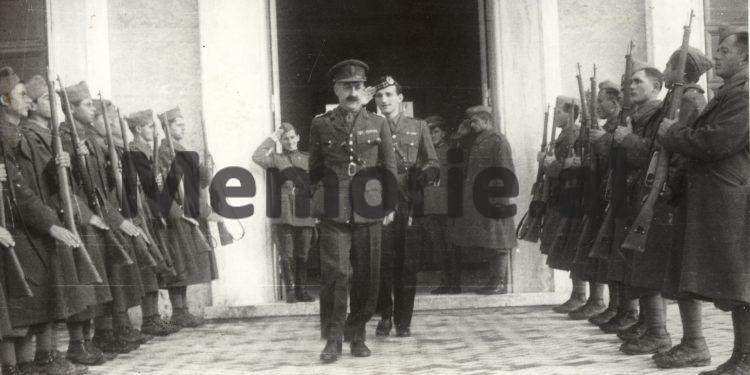
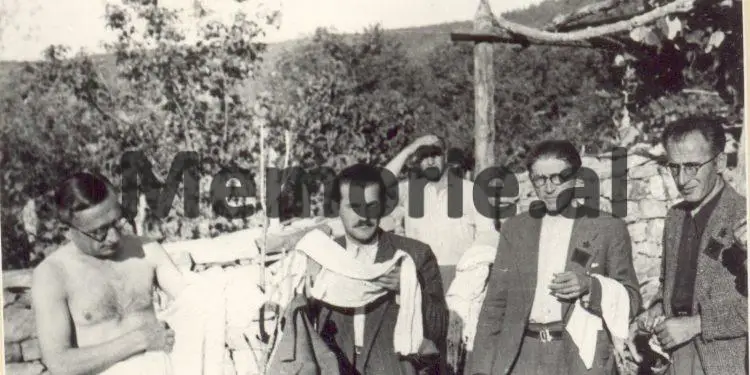
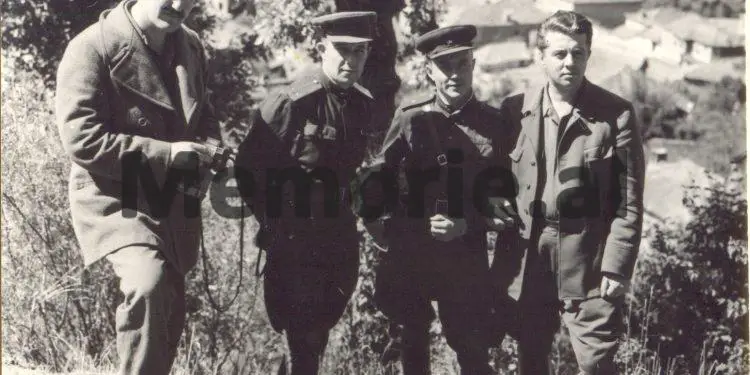
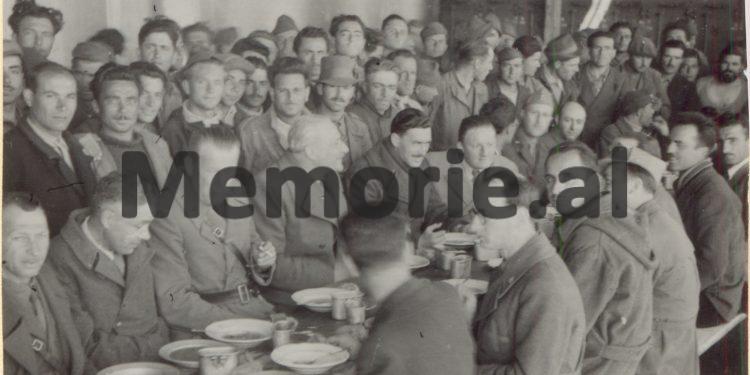
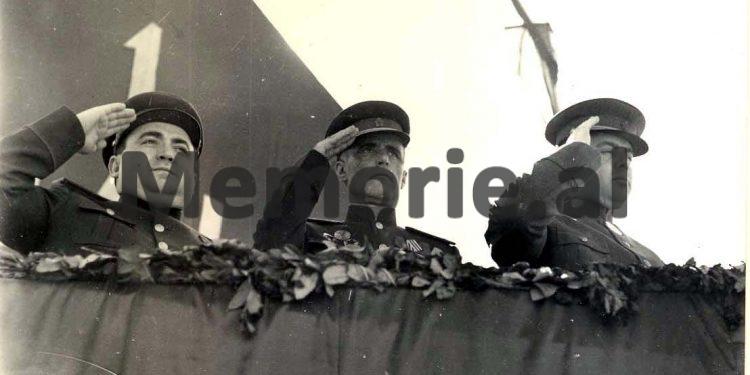
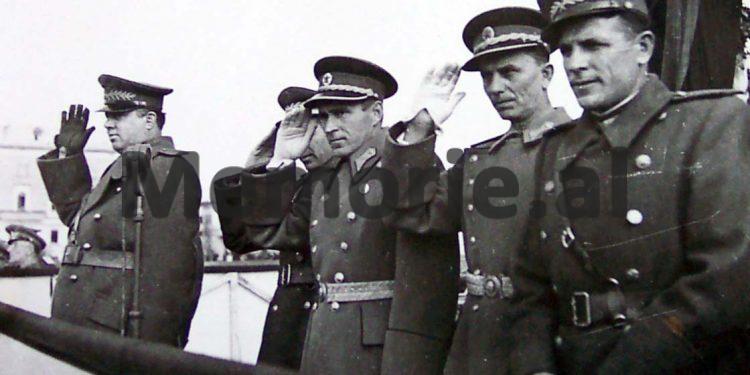
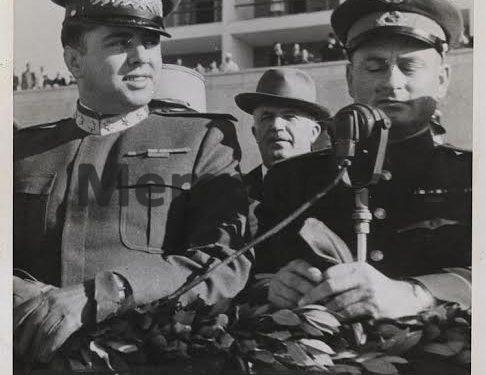
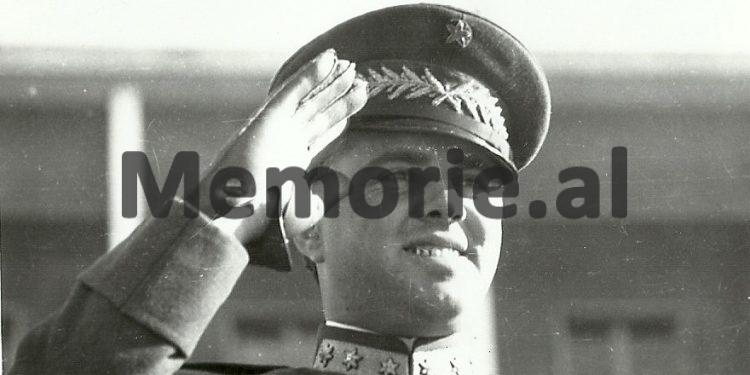
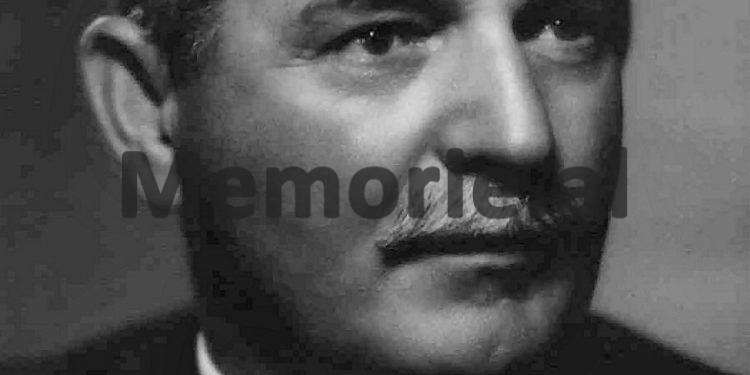
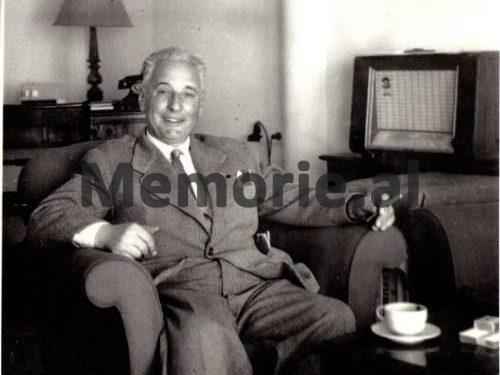
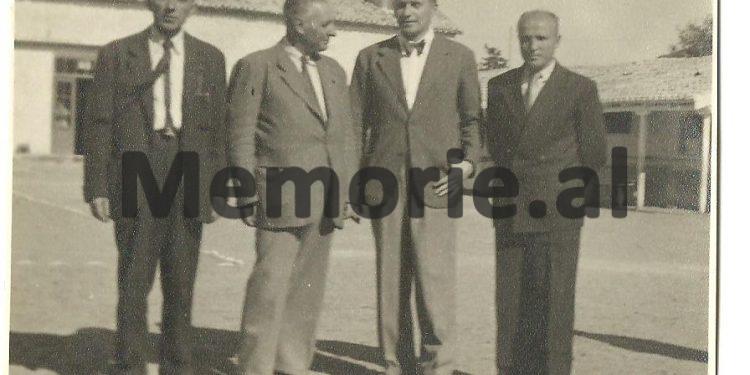


![“The ensemble, led by saxophonist M. Murthi, violinist M. Tare, [with] S. Reka on accordion and piano, [and] saxophonist S. Selmani, were…”/ The unknown history of the “Dajti” orchestra during the communist regime.](https://memorie.al/wp-content/uploads/2026/02/admin-ajax-3-350x250.jpg)
![“In an attempt to rescue one another, 10 workers were poisoned, but besides the brigadier, [another] 6 also died…”/ The secret document of June 11, 1979, is revealed, regarding the deaths of 6 employees at the Metallurgy Plant.](https://memorie.al/wp-content/uploads/2026/02/maxresdefault-350x250.jpg)


